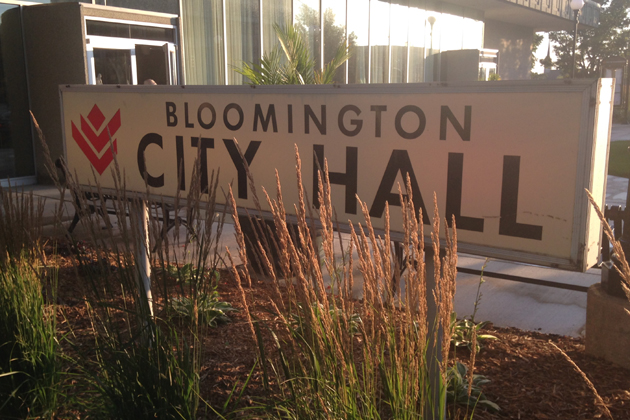
By Scott McCoy
I’m sure by now, you’ve heard that Bloomington and Normal are looking into sharing sale tax revenue – and that’s what I want to discuss in this forum.
Right now, it’s just an idea. However, publicly some are already supporting and pushing for such a concept.
The concept is this… Bloomington and Normal would pool their sales tax revenue together into one pot. Then, they would re-distribute those pooled funds to each municipality using a formula based on population.
Why would they do this?
According to elected officials, this concept would eliminate most of the temptation to incentivize businesses to move from one community to the other.
Kroger on College Avenue is a good example.
Kroger is moving across the street from Normal into Bloomington.
Bloomington provided a sales tax rebate to Kroger – which means they are giving Kroger back some of the sales tax that the City of Bloomington will receive from that store.
Did Bloomington offer this as an incentive to poach Kroger from Normal?
But how would combining sales taxes fix the issue of poaching businesses?
If Bloomington was willing to poach using tax incentives – then why would Normal agree to combine money with them?
Why not just have an agreement between the two governments that states they won’t offer any incentives that both cities don’t offer equally?
Combining sales taxes wouldn’t address other possible incentives, such as property taxes, land purchasing, or TIF districts.
Right now, the sales tax revenue is almost identical to the populations of each city – which is 60% Bloomington, 40% Normal.
This means, if this concept is put into practice today, both communities would get back nearly the same amount of funds as they do right now.
In other words – there is no advantage to it.
If the populations change, or if the business climate changes in favor of one of the two cities, then one of the cities will be giving free money to the other. How is that fair?
There doesn’t seem to be any real, tangible advantage to this idea.
But, the biggest red flag for me is the loss of control by tax payers.
We have a representative government system. If tax money is combined, then part of that control is lost for both communities. You can’t vote them out if they don’t represent you. In my opinion, if they don’t represent you, then they don’t get your revenue.
I agree that the two communities should work together. We are, in many ways, really one community.
But when one community is willing to poach a business by offering incentives to move across the street, it seems we have to work more on our relationships than anything.
Scott McCoy is the former mayor of Pontiac, Illinois. He fought FEMA in Pontiac’s worst natural disaster in recorded history – reversing FEMA’s denial for federal help for the historic flood that greatly impacted Pontiac and Watseka. In 2008 and 2009, Scott successfully took on then-Governor Rod Blagojevich, who attempted to shut down the Pontiac Correctional Center. He also worked to build Pontiac, Illinois into one of the top tourism communities in Illinois.
Scott has been a small business owner for the past 20 years. His company develops software technology and video marketing media.
In 2015, Scott and his family moved to Normal, where his wife, Jennifer, is completing her degree in the ISU Principal Preparation Program.
In December, 2015, Scott joined the WJBC Forums.
The opinions expressed within WJBC’s Forum are solely those of the Forum’s author, and are not necessarily those of WJBC or Cumulus Media, Inc.






